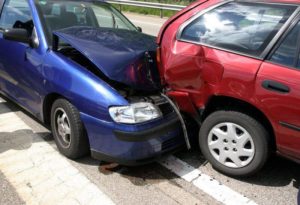Content Reviewed by: Tucker Clagett •
August.24.2023 Vertified Content
Aug 24, 2023 | Read Time: 10 minutes
Can you settle your own Waldorf, Maryland car accident case without hiring a personal injury lawyer? Yes, you can – IF . . .
IF your case is smaller, and IF you have the right type of case, and IF a personal injury lawyer screens your case and tells you this is a reasonable approach, then you can try to settle your own personal injury claim yourself.
You should read this post carefully, and consider all of my warnings. Think of all this in the context of your own case. Does your case fit? Can you do this? If it doesn’t work, you can always hire a Waldorf personal injury lawyer later (as long as you don’t sign a settlement agreement or take the money being offered).
Having a lawyer for your personal injury or car accident case is much better than not having a personal injury lawyer working for you. An experienced personal injury lawyer knows what he or she is doing and knows what this sort of case is really worth in our Southern Maryland court systems.
This legal system is (unfortunately) complicated. And the personal injury system is very complicated. You could easily screw this up and cost yourself a lot of time and money. Believe it or not, there is a legitimate reason lawyers have jobs!
And in most cases, the insurance company is never going to give you fair value on your claim. They only do this when you possess the clear means to file suit and win your case at trial. That means you usually have to retain an attorney who can do that for you.
And if you are handling your own case they know you are trying to save money and they will likely try to take advantage of you.
In most cases, a personal injury attorney is going to put more money in your pocket after he or she gets paid their fee. If that wasn’t true, our jobs wouldn’t exist!
However, if you have a smaller case of the right type, you can probably still handle it yourself. This might work out for you if you have the right case. You have to be the right type of person too. You have to be organized and willing to do your homework. None of this is particularly difficult on a small case, but you cannot do it halfway. Do it right or don’t do it at all.
First, I will give you some guidelines on when to handle your own case, and (more importantly) when not to!
Article Contents
Cases You Can Handle:
If your case meets all of the following criteria, you may be able to settle it yourself:
- Small accidents without much property damage – if your car was badly banged up, then your body probably was too.
- Soft tissue injuries – soft tissue means muscles are sore. The classic neck or back soft tissue injury with little to no treatment and without permanent injury is the best type of case to handle yourself. If you have any injury to a joint or bone, or if you feel any shooting pains, or if you have a concussion, hire a lawyer.
- Cases with little medical treatment – if you only went to the hospital, and maybe one follow up with your doctor, you can settle your own case. If you get sent to physical therapy, or get an MRI, or have treatment that lasts more than 30 days, you probably cannot.
- No permanent injury – You should never try to settle your own case if you have a permanent injury. You must be fully recovered, and you have to be sure about that. Always get a medical doctor to tell you that you are fully recovered, and always wait at least 30 days after your last medical appointment, and 30 days after you think you are back to normal, before settling your case. You don’t want to settle your personal injury case and have more pains crop up the very next day. So don’t rush.
Cases You Should NOT try to Handle Yourself:
- Any case resulting in permanent injury. This is serious and you will never get proper value for your case on your own. If you have permanent injury, your case is likely to be litigated. Nobody should try to litigate their own personal injury case.
- Any case with more than soft tissue injuries. If you have joint pain, broken bones, a concussion, or any shooting pains, then consult an attorney. Don’t handle that sort of case on your own.
- Any case where you go to physical therapy. Those bills will get high quickly.
- Any case with medical treatment that goes beyond 30 days. If your injury lasts that long, you are unlikely to resolve this yourself for a fair amount.
Do Your Research
If you are going to do this, get your free education in personal injury cases by reading three free resources we provide on this website:
- First, read this entire post carefully.
- Next, read our free legal guide to car accidents in Maryland.
- Third, read our client resources for personal injury clients that explain more details about the personal injury system.
- Read our other blog posts. In any blog post you can click the category tag for “personal injury” (in the sidebar on the right on a desktop screen, and at the bottom on a mobile screen) and scroll through all of our blogs on the subject to make sure you didn’t miss anything.
If you are going to settle your own case, you can set aside 30 minutes to read all of that information and get your education before you start this process.
Statute of Limitations
The statute of limitations is the deadline for you to file a lawsuit in your case. If you don’t have your case settled by then, you have to file suit in court or lose your claim forever.
In Maryland, the statute of limitations is 3 years from the date of the accident. If your case is anywhere close to its 3 year anniversary, you need to act fast. It is probably not a good idea to handle your own case if you get within of a statute of limitations.
However, there are exceptions to the statute of limitations that can make it a lot shorter. One of the big ones is if your claim is against the government. There are notice requirements in those cases. If your claim is against a government agency or a government worker on the job while driving, you need to call a lawyer soon to figure out what the applicable statute of limitations really is.
PIP
PIP stands for “Personal Injury Protection.” It is insurance available from your own car insurance policy. Read more about it here. You should apply for PIP from your own insurer, and use it to pay all of your medical bills.
You must have at least $2,500 in PIP in Maryland. If your PIP doesn’t cover all your medical bills, that is a good indication you should not be handling your case by yourself.
What to Do After a Car Accident
We wrote another blog post explaining everything you need to do after a car accident. Read this post here and follow that advice. You have to do the right things after an accident so you have the evidence later on to settle your own case.
How to Deal with the Insurer
Your adversary in this case will be the other driver’s insurance company. They will assign an adjuster who will have the power to settle your case. Here are some tips on dealing with that person:
- Treat them with professional politeness. The insurance adjuster is a human being too. If you get angry with them, they are going to treat you accordingly. They aren’t going to get scared of you and give you more money because you are aggressive.
- Do NOT give a recorded statement. That is not required and it will never help you. We talk about that in more detail here.
- Do NOT give them a signed medical release. If you do, they have access to ALL of your past medical care. Do you really want that? Tell them you will give them the relevant medical information when you send your demand.
- Do NOT take the quick check they send you as a tempting offer. More on that here.
Things You Need to Gather:

- Police report – Get it from the local police using the case number they gave you at the scene.
- Photos of the car – If you don’t have them from the scene, go get some of the car before they fix it.
- Photos of your injuries – If you have bruises or something minor that goes away, document it with a photograph. If you have a major visible injury, or one that doesn’t go away, you should not be handling this case yourself.
- Car damage estimates and repair bills – for the repair of your property damage.
- Medical bills – Get the actual bills the health care provider sent out on your case. Get them from the provider. Do not rely on EOB’s from your insurance company. You need to use the actual charges from the provider. Do not worry about the amount the insurer actually paid on your case. That is likely to be much less.
- Medical Records – Get your medical records from each provider you saw. This is NOT the same thing as the junk they gave you when you left the hospital. You need to get the real medical records they keep behind the scenes. You will have to order them.
- Lost wage information – Get your HR department to give you a statement showing the exact days/hours missed, your rate of pay, and the total amount of wages you lost. Just because you were covered by leave doesn’t mean this isn’t a damage in your case. You should get the value of your leave from the adverse driver’s insurance.

Your Demand Letter & Package:
You will send your demand to the insurer in an organized demand package. Your supporting documents are the items above. Itemize your damages. Total your medical bills and your lost wages separately. State your demand to settle this matter, which should be a bit more than you are willing to accept so you leave some room for negotiations.
Do not give a long statement about what happened in the accident or how you felt during treatment. Let the police report and your medical records do the talking.
How Much to Demand?
This is a tricky question. The real answer is – whatever makes you satisfied. But that should be based on what the case is worth.
There is no magic formula we use to decide what a case is worth. Your case is worth whatever a judge or jury says it is worth. An experienced trial lawyer knows what that is likely to be, but it is never something you can pinpoint exactly.
We have various methods of valuing cases depending on the injuries, how long they lasted, the effect on your life, etc. But those calculations are usually for larger cases. If you have a small case of the type I am discussing in this post, your valuation is much easier.
Note: When I talk about the value of your medical bills in this section, I mean the real amount billed by the health care provider for the service. I do NOT mean the amount the insurance company (PIP or your health insurance) paid for it. That is not relevant in personal injury cases. Your damages are the dollar amount billed – not the dollar amount collected by the doctor. Google the term “collateral source rule” if you are interested in the reason why.
If you have a small case, that means you do not have a lot of non economic damages (sometimes called “pain & suffering”). If you do have a lot of that, then you shouldn’t be handling your own case! Assuming you didn’t have much pain or treatment, then you should get at least 2 times your medical bills, plus your lost wages on top of that. This is the oft-maligned multiplier method of valuing a case. It doesn’t make a lot of sense, but judges and juries do fall back on it sometimes. I think it is a decent way to figure out the lowest reasonable value of your case.
The lowest amount a Judge is going to give you is usually 2X your causally related medical bills, plus your lost wages. That is from a conservative Judge. Of course, anything can happen during trial. The Judge can like you and give more, or not like you and give less. You really never can tell. Every case is fact specific.
But when you know the likely worst case scenario, you can make better decisions about the offer you are actually getting.
Keep in mind a lawyer is going to take 1/3 of your total case value, so you can take a little less than what would be “fair” and still be in a better place than if you hired a lawyer. Do the math and figure this out. Also, call me to discuss it (see the next section).
Call Me for Assistance
We offer a consultation for personal injury cases and I actually mean that. You can use that consultation to find out if you have a case you should try to handle on your own, and for more guidance on how to settle your own case.
If you want to know if your case is one to handle on your own, call me and we can discuss it. If you have made that decision and want to try and handle your own case, call me for a consultation on how to do it. I will tell you what I think about the case and what I think you should demand.
I would like to see your demand letter and a breakdown of your total medical bills and lost wages. You can email that to me and we can talk on the phone. Or you can bring it in to the office and we can meet in person. We can do whatever is convenient for you.
Conclusion & Next Steps
Yes. You can settle your own personal injury case IF it is the right type of case and IF you are willing to do your homework. I hope this article has explained how.
Want to know more? Discover what you need to know about Car Accidents in Maryland. Click here to see our Free Legal Guide to Car Accidents and get answers to your questions today. Know your options. Be informed. Protect yourself.
Need a Personal Injury attorney? Please contact us for a consultation today if you need an experienced personal injury lawyer for your car accident case.
Like our blog? Subscribe to our email newsletter and stay informed!












